| Hello. John F Kennedy learned to speed read, and Jimmy Carter - with his daughter Amy - took a course on speed reading while still US president. Given what I do (reading lots of books and writing about them for a living), quite a few people have asked for tips on speed reading, and techniques for memorization. I don't do speed reading, almost the opposite. When picking up a book that I have expressly chosen to read, I want to give the author due regard by taking the first few chapters slowly, really taking in everything they say. This may mean reading the same line or paragraph several times. Only after I feel that I have got the message of the book, might I start to speed up with the rest of the text, since later chapters generally fill out the idea of the first ones with examples and illustrations. (This is non-fiction I'm talking about; with fiction, every page can be a delight so the only speed reading you will be doing is if it's a book you can't put down). So if anything, I 'slow' read, giving the author due regard, until a faster pace is justified. One other thing I do in lieu of speed reading is 'sizing a book up'. By that I mean taking it in hand, flicking through it, opening at random pages, reading the obscure bits like the acknowledgements and notes. I might just keep a book on my desk or have it by my bedside without reading it, just to be reminded of the author or their message. If their covers are facing up, books are always saying something to us, so be conscious of the books you have 'just lying around'. They encourage or reflect certain feelings, ideas and trains of thought, just as pictures on a wall or sculptures do. As for memorization, the best way to remember anything is to takes notes, and to write down quotations you like. I can happily read and enjoy a book without taking notes, but I don't really feel like I 'own' the ideas until I've at least done some underlining of key sentences. If you've ever written a book or a film review, you will know that the act of reviewing means you treat the subject quite differently than if you were just consuming it for enjoyment's stake. In studying something, and putting down in words your response to it, you are giving the work a more indelible space in your mind. Another way of recalling the essence or meaning of a book is to try to summarize it in one line, as I do with my 'In a nutshell' lines in the 50 Classics books. Can you really sum up Marx's Capital or Sun Tzu's The Art of War in one sentence? Maybe it's sacrilege, but better you remember one thing than nothing at all. And remember, just one idea from one book could change your life - so read widely, and with care. |
Interview
Citywire executive chair Lawrence Lever and director of content Richard Lander recently interviewed me to mark the serialization, in Wealth Manager magazine, of 50 Economics Classics.
Citywire, a financial information company in London, has serialized many of my books.
Among other things, the interview covers how I got into non-fiction writing, methods of selecting titles for each 50 Classics book, the future of work, and thoughts on reading Wittgenstein's Tractatus Logico-Philosophicus! Just click on the image above to watch the interview. Enjoy.
Citywire executive chair Lawrence Lever and director of content Richard Lander recently interviewed me to mark the serialization, in Wealth Manager magazine, of 50 Economics Classics.
Citywire, a financial information company in London, has serialized many of my books.
Among other things, the interview covers how I got into non-fiction writing, methods of selecting titles for each 50 Classics book, the future of work, and thoughts on reading Wittgenstein's Tractatus Logico-Philosophicus! Just click on the image above to watch the interview. Enjoy.
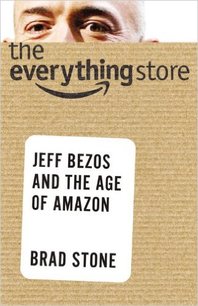
Book reviews
I mentioned reviews above. 50 Business Classics, which comes out in April, will include a chapter on The Everything Store, Brad Stone's excellent profile of Jeff Bezos and Amazon.com.
The beta Amazon.com website, launched in March 1995, was primitive: mostly text and not very attractive, but had a shopping basket and a basic search engine. A key feature was reader reviews, which Bezos rightly thought could make the site different. Some publishing executives took the view, which seems quaint now, that negative book reviews on Amazon were doing the industry a disservice. However, Bezos knew that the company’s real value lay not simply in selling things, but in helping people to make objective buying decisions. Indeed, when I'm browsing books or some other product in an online store, I tend to trust readers/viewers/users more than I do paid critics.
Therefore, when anyone asks how they can support my work, apart from buying my books (in paperback, Kindle, or audio) the best thing you can do is post a review online, even if it's only brief. It's great when you tell me you have bought a 50 Classics book for friends or a loved one, but if you write a review, many more people can learn about the series and be affected in a positive way. So if you have a minute, tell other people what they can expect from my books, and what you liked about them! Here are some links:
Tom's page on Amazon
on Amazon UK
on Amazon Canada
on Amazon India
I mentioned reviews above. 50 Business Classics, which comes out in April, will include a chapter on The Everything Store, Brad Stone's excellent profile of Jeff Bezos and Amazon.com.
The beta Amazon.com website, launched in March 1995, was primitive: mostly text and not very attractive, but had a shopping basket and a basic search engine. A key feature was reader reviews, which Bezos rightly thought could make the site different. Some publishing executives took the view, which seems quaint now, that negative book reviews on Amazon were doing the industry a disservice. However, Bezos knew that the company’s real value lay not simply in selling things, but in helping people to make objective buying decisions. Indeed, when I'm browsing books or some other product in an online store, I tend to trust readers/viewers/users more than I do paid critics.
Therefore, when anyone asks how they can support my work, apart from buying my books (in paperback, Kindle, or audio) the best thing you can do is post a review online, even if it's only brief. It's great when you tell me you have bought a 50 Classics book for friends or a loved one, but if you write a review, many more people can learn about the series and be affected in a positive way. So if you have a minute, tell other people what they can expect from my books, and what you liked about them! Here are some links:
Tom's page on Amazon
on Amazon UK
on Amazon Canada
on Amazon India
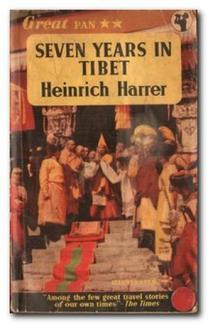
Mountain man
Recently I re-watched the film Seven Years in Tibet (1997), with Brad Pitt cast as German adventurer Heinrich Harrer. Harrer escaped from a British prison camp in World War Two and made his way across the Himalayas to Lhasa. He ended up staying for seven years, and was the confidant and teacher of the Dalai Lama. Had heard Harrer's book was good, but wasn't prepared for just how good. Each night before sleep I read a few pages and learn what Tibet was like when it was an isolated kingdom and with the Dalai Lama reigning in the splendid Potala Palace, which from 1653 to 1889 was the world's tallest occupied building.
In 2002, the year he turned 90, Harrer gave a talk at London's Royal Geographical Society recalling his extraordinary life, including his landmark ascent of the north face of the Eiger. "Mountains are alive," he said, "they have their rhythm and need rest... Mountains give us strength and provide a refuge. They are the realms of freedom."
As someone who is inspired just at the sight of a mountain, let alone climbing one, I am with Harrer. Any time we spend in nature is invigorating; getting lost amid trees or hills or sand makes us forget the trivial. It keeps the mind sharp and gives us back our joy and gumption, which sometimes the working week can take out of us. Hours and days spent looking at black symbols on a screen, or sitting at meeting tables, are not what our bodies were designed for. So this weekend, get out into nature and get back your self.
Kind regards,
Tom Butler-Bowdon
Buy or review my books
On Amazon
Find me
Butler-Bowdon.com - Over 300,000 visitors in 2017
Twitter
Facebook
Instagram
Comments and questions - reply to this email
Share & subscribe
Share this newsletter as a link
Subscribe to this newsletter
Recently I re-watched the film Seven Years in Tibet (1997), with Brad Pitt cast as German adventurer Heinrich Harrer. Harrer escaped from a British prison camp in World War Two and made his way across the Himalayas to Lhasa. He ended up staying for seven years, and was the confidant and teacher of the Dalai Lama. Had heard Harrer's book was good, but wasn't prepared for just how good. Each night before sleep I read a few pages and learn what Tibet was like when it was an isolated kingdom and with the Dalai Lama reigning in the splendid Potala Palace, which from 1653 to 1889 was the world's tallest occupied building.
In 2002, the year he turned 90, Harrer gave a talk at London's Royal Geographical Society recalling his extraordinary life, including his landmark ascent of the north face of the Eiger. "Mountains are alive," he said, "they have their rhythm and need rest... Mountains give us strength and provide a refuge. They are the realms of freedom."
As someone who is inspired just at the sight of a mountain, let alone climbing one, I am with Harrer. Any time we spend in nature is invigorating; getting lost amid trees or hills or sand makes us forget the trivial. It keeps the mind sharp and gives us back our joy and gumption, which sometimes the working week can take out of us. Hours and days spent looking at black symbols on a screen, or sitting at meeting tables, are not what our bodies were designed for. So this weekend, get out into nature and get back your self.
Kind regards,
Tom Butler-Bowdon
Buy or review my books
On Amazon
Find me
Butler-Bowdon.com - Over 300,000 visitors in 2017
Comments and questions - reply to this email
Share & subscribe
Share this newsletter as a link
Subscribe to this newsletter
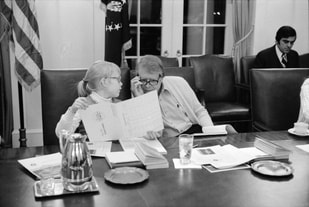
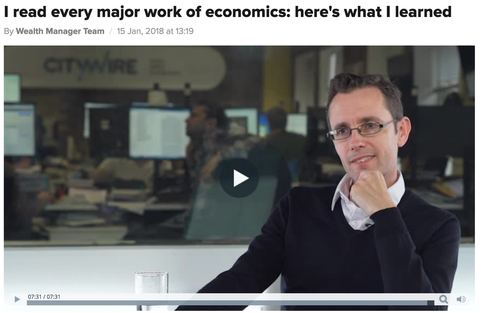




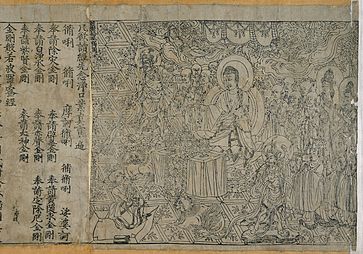
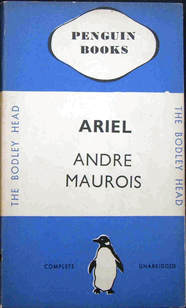
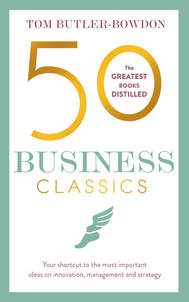
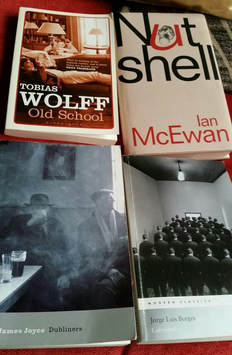
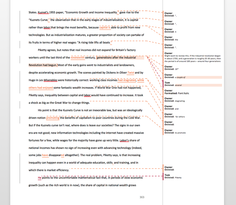
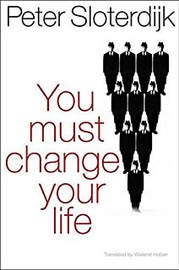
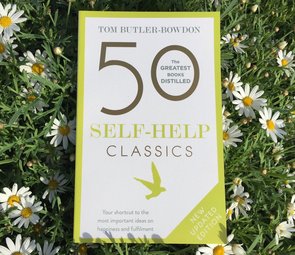
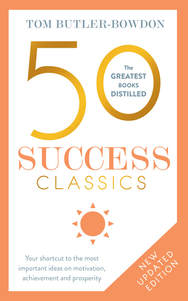
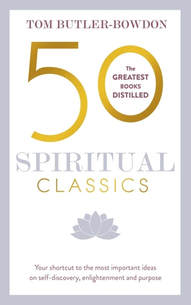
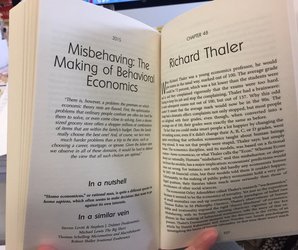
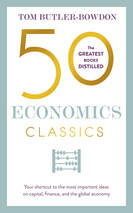

 RSS Feed
RSS Feed